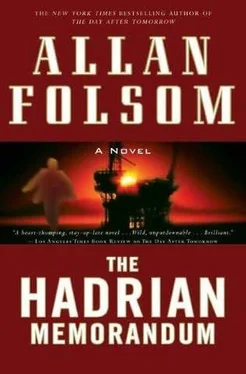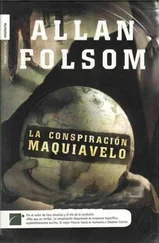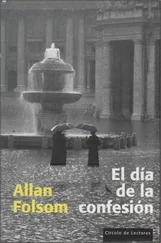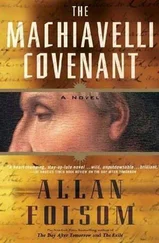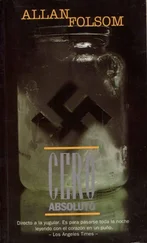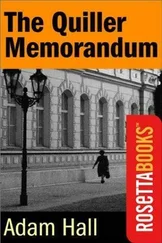Like his personality, like Texas itself, Wirth’s office was huge, if coldly austere, all chrome and glass with pockets of overstuffed cowhide furniture arranged here and there in tidy groups for simultaneous separate conversations. A long side table held bottles of water, a stack of cheap Styrofoam cups, and a large thermos of coffee; a well-worn mesquite-topped bar stood in a far corner. In front of the window was the room’s centerpiece, Wirth’s enormous desk, ten feet long by four feet wide, its glass top an inch thick. On it were his essentials: an open laptop computer, a hand-tooled leather cigar box, a twelve-inch-high cigar lighter in the form of an oil derrick, the Texas-shaped ashtray, a slate gray telephone console, two lined yellow legal pads, an electric pencil sharpener, and four freshly sharpened number 2 Ticonderoga 1388 pencils lined up perpendicular to each other exactly two inches apart. Other than his executive desk chair and a mesquite credenza behind the desk itself, there was very little else. No photographs of wife and children. No bound volumes of corporate handbooks lining ornate bookshelves. No portraits of company founders on the walls, which, except for a large AG STRIKER company logo stenciled in raised gold leaf across from his polished-steel office door, were wholly bare.
A buzzer sounded on Wirth’s console.
“Yes.”
“Mr. Truex,” a female voice responded.
“Send him in.” Wirth said, then looked at Moss, “He’s here.”
“So I gather,” Moss said as the door opened and Loyal Truex, founder and chief executive of the private security contractor Hadrian Protective Services, entered.
“Finally, the man himself,” Wirth snapped. “Where the fuck have you been?”
“Traffic accident. Luckily not mine,” Truex said in a quiet kind of southern drawl.
“Ever think to pick up the phone and call? Or don’t you think this meeting’s important enough?”
“You sound like my mother, Sy.” Truex smiled easily, then plunked down on the arm of an overstuffed chair and made himself at home.
Loyal Truex was forty-three and just over six feet tall. With close-cropped black hair and the muscular build of the former U.S. Army Ranger he was, everything about him-calm, boyish humor, self-made wealth-reflected confidence. His clothes mirrored it: close-fitting, hand-tailored navy suit, open white shirt, plain-toed Italian dress shoes, diamond-studded gold bracelet on one wrist, Rolex watch on the other. That he had spent most of the morning circumventing bad weather while piloting his own Gulfstream jet from Virginia to Texas and after that inching through traffic for nearly an hour seemed to have had no more effect on him than Wirth’s urgent summoning of him to Houston from his Manassas office at six that morning. Still, he was there as promised and ready to go to work.
Wirth got to it quickly. “The Bioko photographs.”
“You want to know where we stand with them.” Truex glanced at Arnold Moss, then looked back to Wirth. “It’s the reason I’m here.”
“I know where the fuck we stand with them. We don’t have them! The reason you’re here is because I want to know what Washington knows. How much you’ve told them or they’ve found out. How closely they’ve been monitoring this.”
“As far as I know, Sy, it’s still all in-house, yours and mine,” Truex said quietly. “Communication with Bioko, with Conor White, is the same as it’s been with you-all done over our own secure lines. The SimCo people in Malabo have been instructed to say nothing to anyone, and they won’t. They’re exceptionally loyal to White and closed-mouth anyway. On the other hand, if Washington has been monitoring the situation in a way we don’t know-which I doubt, for the simple reason that this is a very recent, low-key development that would take time to filter down-I would have heard about it, slick, fast, and hard. As for the photographs themselves, White’s best operators went after them and came up with nothing, so he brought in General Mariano’s army unit.”
“Mariano?” Wirth erupted. “Are you out of your fucking mind?”
“Easy, Sy.” Truex put up a calming hand. “White’s people were getting nowhere, so he asked Mariano for help. Only his sector knows about them, no one else. His men were told they were looking for unauthorized photographs taken by a village priest and anything found was to be brought directly to Mariano himself. As far as I know, only White and a few villagers have actually seen them. Which is how White got them in the first place, through one of the villagers. The result of it all was that White’s operators and Mariano’s turned over every stone and tree root in the area looking for them, taking down a lot of people in the process. A hundred killed at least. So if the pictures were there they would have been found. But they weren’t. What that means is there’s a very good chance the priest destroyed them himself to avoid being killed.” Truex smiled. “Which is probably why nobody’s found them. Because they no longer exist.”
“And maybe they do exist and are in some fucking place nobody knows about,” Wirth spat, anger, impatience, and displeasure crawling all over him. The next came out of the blue. “Who the hell is this landscape guy, Nicholas Marten?”
“Apparently no more than he appears. An American expat visiting Bioko from England doing plant research for clients. He met the priest by happenstance. That’s all we know.”
“That’s all you know?”
“Sy, we’re working on it.”
“I asked you to come here with hard information. You give me ‘as far as I knows’ and ‘maybes.’ And now you add the ‘incidental information’ that the army knows about them, too. Do I have to go over there and take care of this myself? What the fuck do I need you and White for? Shit!”
Abruptly Wirth pushed out of his chair and walked off, trying to digest the reality of what was going on. The information about the existence of the photos had come to them barely twelve hours earlier in Conor White’s urgent e-mail to Truex. That White had known about them earlier and not reported it, and that he had enlisted a special section of the Equatorial Guinea army to help search for them, made things worse because now too many people knew about it. Worse yet, none of it had done any good. The photos were still missing.
Wirth reached the far side of his office, where the AG Striker logo was, then stopped and turned back. “If those photographs become public the whole Bioko field project is dead, and so is this company. If the media doesn’t make certain of it, Washington will.” He pointed his unlit cigar at Moss. “What the fuck do we do, Arnie?”
The New Yorker in him aside, Arnold Moss’s thirty-odd years in the oil business had given him a shrewd appreciation for the complexities of life and a habit of taking the time to think things through. For a long moment he sat there in silence, doing just that.
“When this whole thing came together,” he said finally, “in exchange for protecting our investment and interests in Equatorial Guinea, we agreed to give Mr. Truex and his Hadrian company seven percent of our gross profit from all crude oil pumped from the Bioko field until the year 2050. By our projections and his, that figure is staggering. That means Mr. Truex has considerable interest in making sure the photographs, if indeed they do exist, are not made public. Because if they are, as you correctly implied, Sy, Washington will simply void the contract, make certain our leases are terminated, and put together a new deal elsewhere. And we, along with Mr. Truex, will end up with nothing.” Moss got up and went to the side table to pick up a Styrofoam cup and fill it from the thermos. Holding it, he looked back.
Читать дальше
